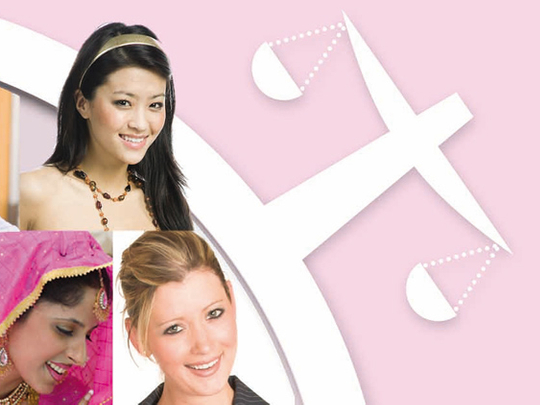
Dubai: A hundred years ago, only two countries allowed women to vote. Today, it is a universal right, with a few exceptions. Yet, women around the globe still face a large number of unresolved issues.
Additional support is still needed, including more financial and legal support to women's organisations — to increase women's access to the legal system and their participation in both the judiciary and security systems — concluded a UN report on women titled Progress of the World's Women in Pursuit of Justice.
"Implement gender-sensitive law reform" and "invest in women's access to justice," were also among the recommendations of the report, an advance copy of which was obtained by Gulf News and released this morning (4am UAE time).
"I think it is clear that despite all the enormous progress in the past 100 years on women's rights and access to justice, there are still problems in every region," said New-York based Laura Turquet, the lead report author from UN Women, the organisation which replaced Unifem.
A century ago, only New Zealand and Finland, allowed women to vote. "Now, that right more or less is universal," added Turquet in an interview with Gulf News.
It was in 1893 that New Zealand became the first country to grant women the right to vote. Then, it was a British territory, and it granted women that right even before the United Kingdom did so in 1928. In 1906, Finland became the first European country to allow women to vote.
"There are now constitutions worldwide [which] guarantee women equal rights … 125 now outlawed domestic violence, but there is still a long way to go, whether on citizenship, or other laws that discriminate against women," Turquet said.
While women in many parts of Asia still struggle to eliminate sexual harassment and domestic violence, those from other parts of the world continue their efforts to win the right to pass on their citizenship to their children from "foreigner" fathers. Many western women have not yet finished their battle for equal wage and pay benefits either.
"Women's rights is an unfinished revolution, if you like," said Turquet.
Obstacles
The UN report includes many examples of women's struggle to win the right of equality and to remove the social and legal obstacles they face because of their gender. These included Colombia, where, in 2006, women won the right to have an abortion in certain cases — including the one to save a woman's life — to Botswana where women married to foreigners confirmed their right by a court ruling to pass on their nationality to their children exactly like men who were married to foreigners could.
Another example was of an Indian NGO (non-government organisation) Sakshi provides judges, from both sexes, with specialised training and space to discuss the challenges they face.
Trained judges came up with more "simple but effective" ways to make courts more accessible, such as waiving court fees, providing forms free of change or prioritising sensitive cases.
Vishaka, an Indian women's organisation, took the case of sexual harassment at the workplace to court. The court took up the case which led to the first comprehensive legally enforceable guidelines on sexual harassment in both public and private places, the UN report noted.
The Indian initiative inspired similar moves in Bangladesh and Pakistan. As a result, almost 500 million women of working age in the three countries have the legal protection needed to carry out their work without being subjected to abuse.
On another front, today there are nearly 600 million women around the world who don't have the legal protection against domestic violence, and this is an awful reality in contrast to other "relieving" facts, Turquet said.
"Two-third of the countries in the world now have laws in place to outlaw domestic violence.
"It is a big step forward for women in every region, but I think that 66 countries still don't have these laws which is also very shocking," Turquet said.
Yet "violence against women is a grave issue, but it is not the only issue that is very important," she added.
Women, including those in the Middle East and Northern Africa (Mena) region face other issues related to marriage and family.
In almost all countries, with the exception of Algeria, Qatar, Tunisia and Iraq, women married to "foreigners can't pass on their citizenship to their children or their spouses, while men married to foreign women can pass on their nationality to their children", said Turquet.
Also, the percentage of women's representation in parliament in the Mena region is another issue that needs to be addressed. Being part of their parliaments, women will be at the forefront in effecting change and passing laws that benefit women.
Western countries are no exception.
Obstacles facing women exist there, too, though of a different nature. "The right of women to receive payment equal to that which men receive for the same work … is one of the challenges that still exists to a great extent in Europe and Northern America as well as other countries," the lead author of the UN report said.
"What this shows us is that women's rights is not an issue just for poor countries or one region," Turquet stressed, adding, "it is actually an issue for all regions. I am from the United Kingdom and there are still big challenges for women rights in the UK as well."
Recommendation
In order to make the justice systems work for women, the UN report recommended a list of steps to be taken.
They include: support women's legal organisations; support one-stop shops and specialised services to reduce attrition rates in the justice chain; implement gender-sensitive law reform; use quotas to boost the number of women legislators; put women on the front line of law enforcement; train judges; increase women's access to courts; implement gender-responsive reparations programmes; put gender equality at the heart of the millennium development goals and invest in women's access to justice.
The donor countries provided the developing nations in 2009 with $2.4 billion (Dh8.8 billion) aid.
"Only 5 per cent of this amount went directly to support women access justice. We think a greater proportion of that money should be spent on things that are related to legal aid, family courts and other issues related to marriages, custody of children and divorce," she said.
Benefits
Demand for Equality at workplace
It was in May 2010, when a verdict, dubbed as the largest penalty ever associated with a gender-discrimination lawsuit, was issued. The ruling was a breakthrough by many measures, and to many it set a precedent.
Twelve female employees of the pharmaceutical company Novartis went to court alleging they were discriminated against on pay and promotions. The jury at the court for the Southern District of New York city concluded that women were routinely paid $105 (Dh385) less per month than men with the same experience. Moreover, the jury found that women were "penalised" for taking maternity leave.
As compensation to the damages inflicted on the 12 women who testified, the jury unanimously awarded them $3.4 million. Another $250 million was awarded in punitive damages to the whole class of women affected by the company's policies. Moreover, "In order to avoid an appeal and the possibility that 5,588 other eligible female employees would apply for compensatory damages, which is estimated could have reached $1 billion, Novartis agreed to pay $175 million to settle the matter, including $22.5 million for improvements to policies and programmes that promote equality in the workplace," a UN report on women said.
Key dates in global laws
- 1993
The International Criminal Tribunal for former Yugoslavia was established. The statute recognised rape as a crime against humanity and a series of landmark cases confirmed sexual violence as a serious war crime. To date, there have been 29 convictions for sexual violence in this court.
- 1998
In Prosecutor vs Akayesu at the International Criminal Tribunal for Rwanda, it was found that rape constituted genocide and a crime against humanity for the first time. To date, there have been 11 convictions for sexual violence in this court.
- 2000
UN Security Council resolution 1325 recognised the role of women in peace-building, emphasising the need for their full participation in all efforts to promote peace and security.
- 2002
The Rome Statute, which established the International Criminal Court, codified as international crimes a broad range of sexual and gender-based crimes. Of the 23 indictments issued by the court, 12 contain sexual violence charges. In Prosecutor vs Brima et al, the Special Court for Sierra Leone found that forced marriage was an inhumane act constituting a crime against humanity.
- 2008-2010
UN Security Council resolution 1820 called for effective steps to prevent and respond to acts of sexual violence as a central part of maintaining international peace and security. Security Council resolutions 1888, 1889 and 1960 provide concrete building blocks for the implementation of resolutions 1325 and 1820.













